This is a reminder about the Standing up for Science media workshop at the University of Warwick on Friday 24th June. The closing date for applications is 9am on Monday 13th June and we’d love to see early career members from BU there. The workshop is open to early career researchers and scientists in all sciences, engineering and medicine (PhD students, post-docs or equivalent in first job) – please find more details in the flyer and pasted below. Do let me know if you’d like any more details, or if you’d like to join us as an observer on the day.
Also, as some of you may know, nominations are now open for the 2016 John Maddox Prize for Standing up for Science. Now in it’s fifth year, this unique international prize recognises the work of an individual who promotes sound science and evidence on a matter of public interest, facing difficulty or hostility in doing so. Please do share this with your networks (#MaddoxPrize on Twitter) — and start thinking about who you might nominate for the award. The deadline for entries is 1st August 2016. If you’d like to run an article or feature it in a newsletter- please let me know.
John Maddox was a founding trustee of Sense about Science, and an inspirational figure to many. A passionate and tireless communicator and defender of science, Maddox engaged with difficult debates, inspiring others to do the same. To nominate someone for the prize or find out more, please visit http://bit.ly/Maddox2016.
Tagged / BU research
Announcement BU Humanisation Conference 2016
BU Humanisation Conference 21st June 2016
Venue: Room EB708, Executive Business Centre, 89 Holdenhurst Road, BH8 8EB
Please find the Programme for the Humanisation conference on the 21st June 2016 attached.
Please feel free to pass the information on to others internal and external to the university (academic and practice) who you feel may be interested
The conference is being run at no cost and so you need to make your own arrangements for lunch. Let Dr. Caroline Ellis-Hill ( cehill@bournemouth.ac.uk ) know by the 15th June if you wish to attend .
If you only want to attend for part of the day, please state which part of the day you’d like to attend.
| 9.30 | Registration | |
| 10.00 | Dr Caroline Ellis-Hill | Welcome |
| 10.10 | Anne Quinney | Humanisation of the BU Generic Student Assessment Criteria. |
| 10.30 | Dr Sean Beer | Perceptions of the authenticity of food: a study of residents in Dorset (UK) |
| 10.50 | Prof Ann Hemingway | Innovative routes to Wellbeing: Equine Assisted interventions |
| 11.10 | Coffee | |
| 11.30 | Jane Fry | Sharing human concerns: utilising an embodied interpretative approach to convey findings from a descriptive phenomenological study |
| 11.50 | Dr Carole Pound | Humanising care: translating theory into practice in stroke care |
| 12.10 | Rutherford and Dr. Emer Forde | The Rutherford Introspective Photography: Promoting self-reflection and wellbeing of GP trainees through photography. |
| 12.30 | Free time Please see information about local venues for lunch | |
| 2.00 | Dr Vanessa Heaslip | How phenomenology enables insight into the Human lives of Gypsy Roma Travellers’ |
| 2.20 | Mevalyn Cross | Experiencing the Humanisation Framework together |
| 2.40 | Dr Jan Mosja | Chaplaincy at the bedside. Learning from Buddhist chaplains and their contributions to the humanisation of health care. |
| 3.00 | Sally Lee | Humanising and the Care Act well-being principle |
| 3.20 | Dr Mary Grant and Dr Catherine Lamont Robinson | HeART of Stroke: feasibility study of an Art & Health intervention following a stroke |
| 3.40 | Thanks, Tea and Close | |
New paper BU PhD student Sheetal Sharma
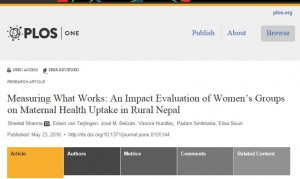 Congratulations to FHSS PhD student Sheetal Sharma on her latest paper [1]. The paper ‘Measuring What Works: An impact evaluation of women’s groups on maternal health uptake in rural Nepal’ appeared this week in the journal PLOS One. Sheetal’s innovative mixed-methods approach was applied to a long-running maternity intervention in rural Nepal. The paper concludes that community-based health promotion in Sheetal’s study had a greater affect on the uptake of antenatal care and less so on delivery care. Other factors not easily resolved through health promotion interventions may influence these outcomes, such as costs or geographical constraints. The evaluation has implications for policy and practice in public health, especially maternal health promotion.
Congratulations to FHSS PhD student Sheetal Sharma on her latest paper [1]. The paper ‘Measuring What Works: An impact evaluation of women’s groups on maternal health uptake in rural Nepal’ appeared this week in the journal PLOS One. Sheetal’s innovative mixed-methods approach was applied to a long-running maternity intervention in rural Nepal. The paper concludes that community-based health promotion in Sheetal’s study had a greater affect on the uptake of antenatal care and less so on delivery care. Other factors not easily resolved through health promotion interventions may influence these outcomes, such as costs or geographical constraints. The evaluation has implications for policy and practice in public health, especially maternal health promotion.
Reference:
- Sharma, S., van Teijlingen, E., Belizán, J.M., Hundley, V., Simkhada, P., Sicuri, E. (2016) Measuring What Works: An impact evaluation of women’s groups on maternal health uptake in rural Nepal, PLOS One 11(5): e0155144 http://journals.plos.org/plosone/article?id=10.1371%2Fjournal.pone.0155144
Hat-trick of new diabetes papers
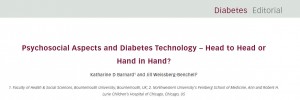 Congratulations to Katharine Barnard and Janet James in FHSS and their colleagues in the USA and Sweden on their latest publication on the ‘Impact of Chronic Sleep Disturbance for People Living with T1 Diabetes’ [1]. Recently Dr. Barnard also co-authored an editorial in the international journal Diabetes under the title ‘Psychosocial Aspects and Diabetes Technology – Head to Head or Hand in Hand?’ [2]. Finally, the third recent paper by Dr. Barnard and colleagues from across the UK was published in Diabetes Care, the journal of the American Diabetes Association [3].
Congratulations to Katharine Barnard and Janet James in FHSS and their colleagues in the USA and Sweden on their latest publication on the ‘Impact of Chronic Sleep Disturbance for People Living with T1 Diabetes’ [1]. Recently Dr. Barnard also co-authored an editorial in the international journal Diabetes under the title ‘Psychosocial Aspects and Diabetes Technology – Head to Head or Hand in Hand?’ [2]. Finally, the third recent paper by Dr. Barnard and colleagues from across the UK was published in Diabetes Care, the journal of the American Diabetes Association [3].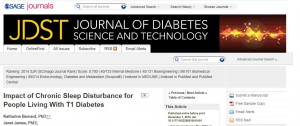
Congratulations!
Prof. Edwin van Teijlingen
References
- Barnard, K., James, J., et al. Impact of Chronic Sleep Disturbance for People Living With T1 Diabetes J Diabetes Sci Technol 2016; 10: 762-767.
- Barnard K.D., Weissberg-Benchell, J., Psychosocial Aspects and Diabetes Technology – Head to Head or Hand in Hand? Diabetes 2016; 12(1): 35-36. DOI: http://doi.org/10.17925/EE.2016.12.01.35
- Barnard K.D, Holt, R.I. et al. ,Could the Discrepancy in Perceived Emotional Care Received and Provided Be a Barrier to Active Diabetes Self-management? Insights From the Second Diabetes Attitudes, Wishes and Needs (DAWN2) Study. Diabetes Care 2016; 39(2): e20-e21. DOI: http://dx.doi.org/10.2337/dc15-0674
New nutrition paper FHSS
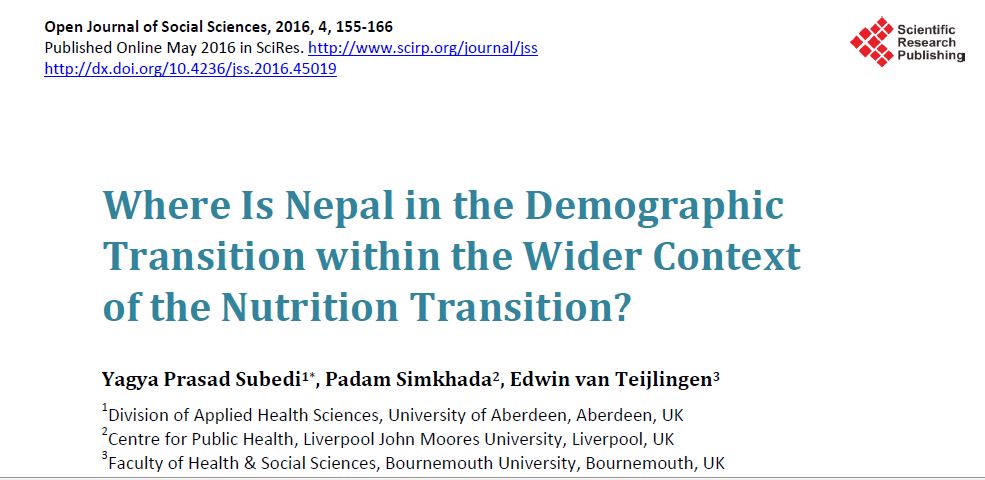 Today saw the publication of a paper analysing the long-term development of Nepal [1]. It offers insight into Nepal’s position in the country’s demographic transition in relation to its nutrition transition. In traditional societies both fertility and mortality are high and in modern post-industrial society both are low.
Today saw the publication of a paper analysing the long-term development of Nepal [1]. It offers insight into Nepal’s position in the country’s demographic transition in relation to its nutrition transition. In traditional societies both fertility and mortality are high and in modern post-industrial society both are low.
The lead author Yagya Prasad Subedi is a Ph.D. student at the University of Aberdeen and his co-authors are based at Liverpool John Moores University (Prof. Padam Simkhada, who is also BU Visiting Faculty) and in the Centre for Midwifery, Maternal & Perinal Health (CMMPH) in the Faculty of Health and Social Sciences (Prof. Edwin van Teijlingen).
Reference:
- Subedi, Y.P., Simkhada, P., van Teijlingen, E. (2016) Where is Nepal in the Demographic Transition within the wider context of the Nutrition transition? Open Journal of Social Sciences, 4: 155-166. The paper is freely available, click here!
Warwick media workshop – applications now open
Sense About Science will be holding a Standing up for Science media workshop at the University of Warwick on Friday 24th June 2016. This full day event is free and for early career researchers and scientists in all sciences, engineering and medicine (PhD students, post-docs or equivalent in first job).
During the workshop we combine discussion about science-related controversies in media reporting with practical guidance and tips for how to deal with the media. Please find further information at http://www.senseaboutscience.org/data/files/VoYS/2016/Warwick/VOYS_workshop_Warwick_flyer_2016.pdf.
These workshops are very popular and places are limited. To apply, please fill out the online application form: http://bit.ly/1WEbcRJ. If you are a member of or are funded by any of our partner organisations (listed on the flyer), please state on the application – our partners hold five priority places for this workshop. For further information, please email Joanne jthomas@senseaboutscience.org.
Closing date for applications is 9am on Monday 13th June
Congratulations to Dr. Pramod Regmi and BU PhD student Folashade Alloh
Diabetes prevention and management in South Asia: A call for action
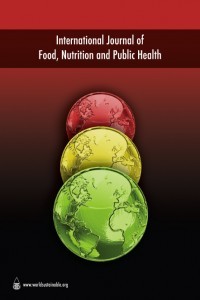
Today the International Journal of Food, Nutrition and Public Health accepted our paper Diabetes prevention and management in South Asia: A call for action for publication [1]. The Public Health paper argues that is an urgent need to reduce the diabetes prevalence in South Asia through evidence-based interventions ranging from prevention and early detection to appropriate treatment and care. The authors suggest that a multi-sectorial collaboration across all stakeholders is necessary to raise awareness about diabetes, its prevention, treatment and care in the region. The paper, with Dr. Pramod Regmi as lead author, is co-authored with colleagues at the University of Oxford, the University of Otago (NZ), University of the West of England, and, Bournemouth University, including BU PhD student Folashade Alloh.
Reference:
- Regmi, P.R., Kurmi, O., Aryal, N., Pant P.R., Banstola, A., Alloh, F., van Teijlingen, E. Diabetes prevention and management in South Asia: A call for action International Journal of Food Nutrition and Public Health (forthcoming).
FHSS PhD student awarded prestigious Churchill Medallion in London
129 Fellows awarded a prestigious new Churchill Medallion at a London award ceremony
Anita Immanuel, PhD student in FHSS was presented with a newly designed Churchill medallion at a prestigious biennial award ceremony in London this week (Wednesday, 18th May), after successfully completing her Winston Churchill Travelling Fellowship.
Anite was presented with the stunning blue cloisonné enamelled silver Churchill medallion by its designer and Guest of Honour, Professor Brian Clarke, who is a world renowned architectural artist. Professor Clarke presented 129 Fellows with their medallions at a ceremony in Church House, in Central London. Church House has significant Churchillian associations as during the Blitz, Winston Churchill requisitioned Church House as a makeshift Houses of Parliament after the originals had been damaged by bombing.
As part of her Fellowship and linked to her PhD research, Anita travelled to Australia and Canada. Her PhD reserach examines the quality of lives of adults who have survived cancer of the blood or lymphatic system. Patients with haematological cancers have frequently reported lack of care-coordination as an unmet need following their intensive treatment. Anita’s Fellowship has been outlined in a previosu BR Research Blog (click here!).
Speaking about the Fellowship, Prof. Stephen Tee (Executive Dean FHSS) said: “These Winston Churchill Travelling Fellowships provide opportunities for UK citizens to go abroad on a worthwhile project, enriching their lives through their global experiences. We are proud of Anita’s PhD research focusing on the quality of life in people who have survived cancer. This Fellowship has also benefited Anita and her colleagues at the Royal Bournemouth and Christchurch Hospitals NHS Foundation Trustwhere she works as specialist nurse in this field”.
Anita’s PhD is supervised by: Dr. Jane Hunt and Prof. Edwin van Teijlingen (both FHSS) and Dr. Helen McCarthy, Anita’s clinical Ph.D. supervisor.
In 2017 The Winston Churchill Memorial Trust will be awarding 150 Travelling Fellowships. This will directly support British citizens who want to travel overseas to gain knowledge, experience and best practice to benefit others in their UK professions and communities, and society as a whole. The Winston Churchill Memorial Trust was established shortly after Sir Winston’s death in 1965, as his national memorial and living legacy. Since then it has awarded over 5,250 Travelling Fellowships. The application process for travel in 2017 is now open! Visit www.wcmt.org.uk for more details, or to apply before 5pm on 20th September 2016, for travel in 2017.
Festival of Learning: Working Together for Widening Participation

27th June 2016 14:00-16:00
Talbot Campus
In the week that sees the publication of the White Paper and the Queen’s speech, issues of widening participation and education equity seem even more topical than ever.
BU’s programme of Fair Access Research seeks to create a culture of widening participation through working and learning together.
As part of BU’s Festival of Learning, our Fair Access Researchers will be facilitating a workshop exploring educational disadvantage in the region.
Bournemouth, Poole and surrounding region face significant challenges when it comes to supporting those most in need to access and succeed in education. These challenges are being tackled by dedicated experts working hard to support disadvantaged learners to engage in a variety of education settings.
The event will be held on Monday 27 June 2016 between 14:00-16:00 in the new FUSION BUILDING, TALBOT CAMPUS.
We are inviting experts working in the field of education and equality to come together and share experiences and skills to find sustainable solutions to the region’s major education challenges.
We want grassroots solutions to grassroots challenges facing the region. This approach will enable targeted and tailored responses that work with the unique challenges of education and social justice in a diverse rural and coastal region.
In this innovative two-hour workshop, we will work together to find sustainable solutions to the question:
“What are the challenges and opportunities for disadvantaged students to access education in the region?”
This workshop is about active participation by all those involved and collectively developing grassroots solutions. By taking part, you will be helping to build a community to turn challenges and barriers into opportunities and bridges.
We want you to be involved and to shape how our responses! So, please share with your colleagues and networks so that we can have a broad range of participants. We are particularly interested in learning from the expertise and experiences of:
- Pupil premium leads
- Further education practitioners
- Youth workers
- Community educators and activists
- Special Education Co-ordinators
It is through working together and learning with each other that we can help make regional education opportunities more accessible and more sustainable.
To book a place, click here.
To express an interest in participating in the workshop or find out more about the session or BU’s unique Fair Access Research project email Julie Atherton on athertonj@bournemouth.ac.uk
Pramod Regmi in today’s The Himalayan Times
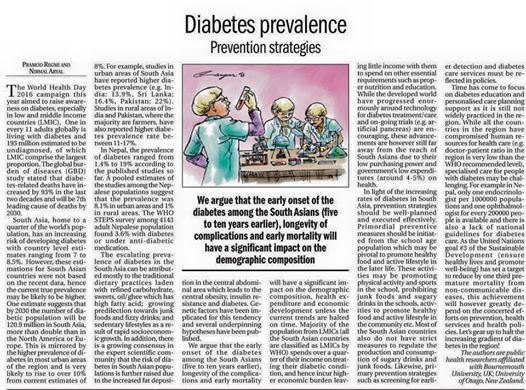 Today the English-language daily newspaper The Himalayan Times published an article by Dr. Pramod Regmi (BU’s Faculty of Health & Social Sciences) and Dr. Nirmal Aryal (University of Otago, New Zealand) on the growing diabetes problem in South Asia. Dr. Regmi is post-doctoral researcher who focuses, among other topics, on diabetes research in the UK. The Himalayan Times is published in Nepal and has a wide readership in Kathmandu. The article can be accessed online by clicking here!
Today the English-language daily newspaper The Himalayan Times published an article by Dr. Pramod Regmi (BU’s Faculty of Health & Social Sciences) and Dr. Nirmal Aryal (University of Otago, New Zealand) on the growing diabetes problem in South Asia. Dr. Regmi is post-doctoral researcher who focuses, among other topics, on diabetes research in the UK. The Himalayan Times is published in Nepal and has a wide readership in Kathmandu. The article can be accessed online by clicking here!
Congratulations,
Prof. Edwin van Teijlingen
CMMPH
Showcase YOUR research at the RSA Festival of Learning Event
We are looking for researchers from across BU to take part in the BU Research Staff Association (RSA) Festival of Learning event ‘RSA – Research with impact’ on 28th June 2016 between 4 -7pm.
During this event researchers from across BU will have an oppoortunity to showcase their research to the public in innovative ways (e.g. through Lego, artefacts, or talking around an exhibited poster or object etc). Please note that we have a small budget to help researchers pay for posters and other artefacts.
If you would like an opportunity to showcase your research to wider audiences then please email Michelle Heward mheward@bournemouth.ac.uk for an expression of interest form (expressions of interest to be received by 27th May 2016).
Kind regards, Michelle Heward and Marcellus Mbah
BU Research Staff Association
Brownsea Marine and Coastal Observatory
In the pioneering spirit that has characterised previous endeavours on Brownsea Island, a group of seven BU Environmental Science students and staff have been carrying out surveys and studies that will contribute to the creation of a Marine and Coastal Observatory for Poole Harbour. In a partnership that includes the National Trust, Dorset Wildlife Trust and Poole Harbour Study Group, the observatory will create a fusion of coastal research and teaching and provide student placement opportunities.
During this past week, students have been carrying out plankton surveys with Dr Dan Franklin, establishing intertidal monitoring stations and recording nesting bird behaviour on the lagoon with Dr Roger Herbert and Dr Rick Stafford and fieldwork linked to coastal sediment movements and cliff erosion with BU geomorphologists Andy Ford and Dr Luciana Esteves. We were grateful for excellent accommodation at the Dorset Wildlife Trust ‘Villa’ and boat and equipment logistics and transportation using the National Trust vessel Enterprise. 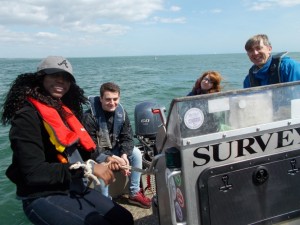
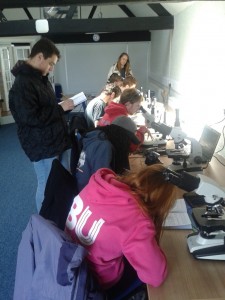
Students on board Sea Rush sampling plankton with BU marine biologists Dr. Dan Franklin and visiting Prof. John Humphreys (jhc Research and Poole Port Commissioner).
Examining the catch in the National Trust ‘Sail Loft’.
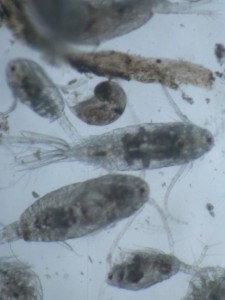
View down the microscope showing copepods. On hand was BU Alumni and local plankton expert Andrew Powell from Poole Harbour Study Group.
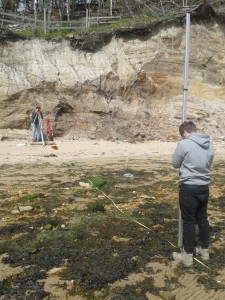
Surveying beach profiles on the south-west coast.
Important aims of the Observatory are to create a web-based an inventory of marine life of the harbour and to publish reports and papers that record and interpret environmental change.
For further information contact Dr. Roger Herbert, Department of Life and Environmental Sciences.
rherbert@bournemouth.ac.uk
International launch of ERC Hyksos Enigma project at ICAANE conference
Last week, the Austrian Academy of Science hosted the 10th International Congress on the Archaeology of the Ancient Near East (ICAANE) on its magnificent premises in the heart of Vienna. A whole day was dedicated to the international launch of the ERC advanced grant The Hyksos Enigma, for which the Austrian Academy and Bournemouth University are co-beneficiaries, combined with a state-of-the-art review of research on the most significant site of the Hyksos, their capital Avaris/Tell el-Dab’a in the eastern Nile Delta. This was an important day to show Bournemouth’s presence and to promulgate its research in the bioarchaeology of the Hyksos, engage in extensive networking with associates and partners of the project, and to establish new links in support of Bournemouth’s role in the project. Regular updates will now appear on the new project website (http://thehyksosenigma.oeaw.ac.at/).
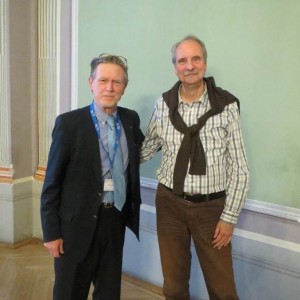
Prof Manfred Bietak (left), project lead, Institute for Oriental and European Archaeology at the Austrian Academy of Sciences, and Prof Holger Schutkowski, Co-PI, Department of Archaeology, Anthropology and Forensic Science.
FHSS PhD student invited to speak in Saudi Arabia
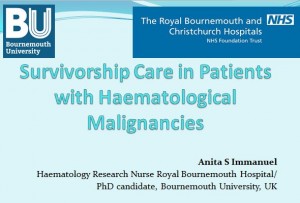 BU PhD student Anita Immanuel has been invited to speak at the 4th Annual Saudi Hematology/Oncology Nurses Meeting in Jeddah, Saudi Arabia this Saturday (May 7th). Anita’s Ph.D. study examines the quality of lives of adults who have survived cancer of the blood or lymphatic system. Patients with haematological cancers have frequently reported lack of care-coordination as an unmet need following their intensive treatment. With the increase in the number of cancer survivors and possible long-term side effects that could impact on the quality of life, it is important to have (a) good post-treatment follow up; and (b) seamless coordination between health care providers.
BU PhD student Anita Immanuel has been invited to speak at the 4th Annual Saudi Hematology/Oncology Nurses Meeting in Jeddah, Saudi Arabia this Saturday (May 7th). Anita’s Ph.D. study examines the quality of lives of adults who have survived cancer of the blood or lymphatic system. Patients with haematological cancers have frequently reported lack of care-coordination as an unmet need following their intensive treatment. With the increase in the number of cancer survivors and possible long-term side effects that could impact on the quality of life, it is important to have (a) good post-treatment follow up; and (b) seamless coordination between health care providers.
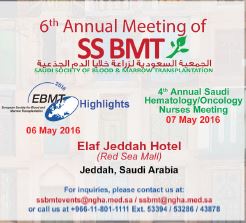 Dr. Helen McCarthy (The Royal Bournemouth and Christchurch Hospitals NHS Foundation Trust), Anita’s clinical Ph.D. supervisor at congratulated her on this invitation. Dr. McCarthy said: “This talk in Saudi Arabia gives Anita the opportunity to present some of her preliminary Ph.D. findings.”
Dr. Helen McCarthy (The Royal Bournemouth and Christchurch Hospitals NHS Foundation Trust), Anita’s clinical Ph.D. supervisor at congratulated her on this invitation. Dr. McCarthy said: “This talk in Saudi Arabia gives Anita the opportunity to present some of her preliminary Ph.D. findings.”
FHSS’s Dr. Jane Hunt commented: “Anita’s research is addressing a growing issue with more people living longer with cancer. Her Ph.D. identifies key quality of life issues and helps us to understand the needs surrounding survivorship care better.”
Prof. Edwin van Teijlingen
CMMPH
Keynote Speaker at BAM Marketing and Retail SIG Event on Sustainability and Ethical Consumption
![image[1]](http://blogs.bournemouth.ac.uk/research/files/2016/05/image1-1-300x113.jpeg)
Professor Juliet Memery was a keynote speaker last week at a British Academy of Management Event held at the Surrey Business School, University of Surrey. The event on Sustainability and Ethical Consumption was hosted by the BAM Marketing and Retail Special Interest Group and brought together academics and practitioners to discuss research in the area. The event aimed to make an assessment of sustainability and ethical consumption research by looking back at its original purpose, how it has developed, where it is now, and what it could or should develop into, so providing food for thought for future research in the area. The day was well attended with over 30 presentations being made and a lot of insightful discussions were held.
The event is tied to a special issue of ‘Management Decision’, a peer reviewed journal published by Emerald, on Sustainability and Ethical Consumption which will be edited by the co-organisers and keynote speakers. Details of the special issue will be advertised in the near future, and submissions are invited from researchers in the area.
Perspectives from an Early Career Researcher (ECR): Tips for Conference Engagement
Last week I attended the 20th European Congress of Physical and Rehabilitation Medicine (ESPRM) in Estoril, which covered topics from functional gait analysis-to-household ergonomics. By the morning coffee break of day one, it came back to me that engaging in a conference is an art-form. In this brief report I hope to share some tips, based on my own experiences in academia.
Beforehand, workload-dependent, leave all mobile technologies and laptops in your room. Emails can wait until the day’s end and social media will only serve to distract (Quentin Tarantino bans mobile phones from his film sets, so there).
Firstly, register early and familiarize yourself with the layout of the conference centre. Stop for a coffee; premium-grade typically dispensed by the sponsor’s kiosk.
Secondly, take the time to read the programme, and map your ‘conference schedule’ (i.e., what sessions you intend to attend). Breakfast presents a fine opportunity for planning, on a day-by-day basis. Schedule planning is important for larger meetings, which can deliver many parallel sessions. Attend a conference with an aim(s). Be strategic; balance topics specific to, and outside your research area. For example, I attended i) functional mobility in older adults (subject-specific), ii) Cochrane Review/PGR development (non-specific, CPD), iii) cognitive dual-tasking (semi-specific, interest), and iv) Nordic walking (personal interest) sessions. Specialist workshops, such as ECR sessions, are gold-dust as you gain insight from international perspectives and practices. I also recommend not studiously attending every single session; I did this in my first conference and burnt out post-coffee break on day two. Don’t feel guilty missing a session if you feel it holds no relevance to you (or your personal development), otherwise you risk losing concentration on the sessions you are interested in. Stop for a coffee.
Thirdly, relax, enjoy yourself and don’t be afraid to talk. You can often learn more (and establish links) during coffee breaks, than in the sessions. Yes, you are at work, and yes, you may be abroad, but don’t fall into wi-fi hunting. Ultimately, you will check, and respond to, emails. You can do this back home. Engage with the academic and local cultures. Remember wi-fi may be omnipresent, but it wasn’t until about 6 years ago.
Finally, ask constructive questions. If presenting, welcome questions as they reflect an interested audience, and may highlight areas that you haven’t yet considered. Do not view negative/antagonistic questions as a challenge, they may not agree with your perspective and/or may have misinterpreted you. Data rigour and quality control are imperative, but findings may be serendipitous.
If you can master these, please tell me how, as I’m still learning.
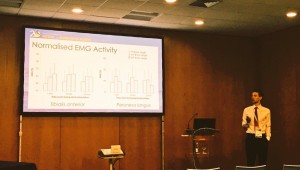
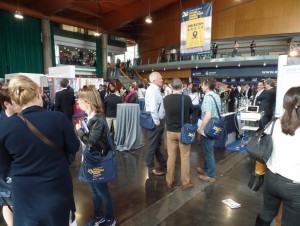
Dr James Gavin
Lecturer (Exercise Physiology)
Department of Sport & Physical Activity
jgavin@bournemouth.ac.uk
BU poster at First National Conference on Adolescent Health & Development in Nepal
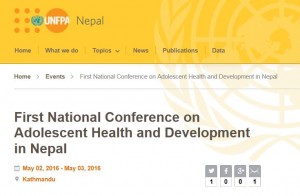 In two days time the first ever National Conference on Adolescent Health and Development in Nepal starts in Kathmandu. BU has a joint poster at this conference on the topic of Community-Based Menstrual Hygiene Promotion in Rural Nepal. The poster reports on a project led by Ram Chandra Silwal.
In two days time the first ever National Conference on Adolescent Health and Development in Nepal starts in Kathmandu. BU has a joint poster at this conference on the topic of Community-Based Menstrual Hygiene Promotion in Rural Nepal. The poster reports on a project led by Ram Chandra Silwal.
The project is an international collaboration between Green Tara Nepal, BU Visiting Fellow Prof. Padam Simkhada (representing Liverpool John Moores University), the University of Tokyo and the Centre for Midwifery, Maternal and Perinatal Health (CMMPH) in BU’s Faculty of Health & Social Sciences.

Prof. Edwin van Teijlingen
CMMPH
Reference:
- Silwal, R.C., Pradhan, S., Sharma, A., Simkhada, P., van Teijlingen,E., Jimba, M. (2016) ‘Community-Based Menstrual Hygiene Promotion in Rural Nepal’ poster at First National Adolescent Health & Development Conference held in Kathmandu, Nepal, 2-3 May 2016.
Sports Nutrition Live 2016 – A Review
James Gavin, Lecturer in Exercise Physiology, attended Sports Nutrition Live 2016 on Saturday, which was aimed at sports nutritionists, nutritional therapists, and personal trainers. The day began with a talk on Functional Sports Nutrition, emphasising that we should consider agriculture when thinking about nutrition (i.e., ‘soil to the plate’). Particularly, quality before quantity. Not the author’s area of expertise, this seemed a positive start to a conference in a discipline often shrouded by conflicting evidence and, dare I say it, pseudoscience (or conclusions beyond the evidence).
Next the audience digested Gastrointestinal (GI) Complaints and Exercise by Dr Justin Roberts (Anglia Ruskin University). Tips from this insightful talk: 1) GI complaints most prevalent in cycling (cramped position), 2) avoid eating just prior to above-moderate intensity exercise, and 3) keep hydrated. Taking these suggestions additively: do not cycle home from the pub! Before lunch, the session focused on how many of us are (apparently) ‘nucleotide-deficient’ (important for DNA production). However, the Dr Koeppel forgot to mention the functional consequences of a nucleotide-deficiency. Interestingly, and questionably, results derived from: IBS sufferers, mice and…Atlantic salmon.
Moving on, after lunch we were treated to an delightful session on Nutritional Strategies for Tour de France Cyclists by former professional rider, Eifion Weinzweig. Most interesting was the use of DNA Profiling, and the physiological and psychological demands placed upon professional cyclists. Oh, and you have to drink a lot of water cheat EPO testing! Next up was Dr Graeme Close (Liverpool John Moores University) discussing: Are Carbohydrates Still King When It Comes to Performance. Drawing upon Graeme’s applied experiences in professional rugby, and underpinned by classical studies in physiology, discussion focused upon: the role of carbohydrates in cell signaling, the joys of muscle biopsying, and the importance of carbohydrate for endurance and team-sport performance. All told, a really interesting one-day conference, drawing together speakers from varied backgrounds and industries…and gladly I say it, no pseudoscience. Well, maybe a little.
Sports Nutrition Live 2016 website
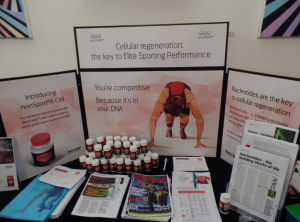

Dr James Gavin
Department of Sport & Physical Activity
Faculty of Management
jgavin@bournemouth.ac.uk
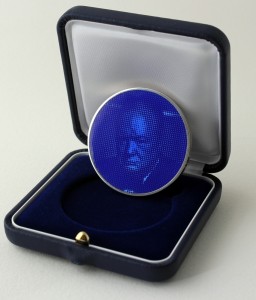













 Conversation article: How 2-Tone brought new ideas about race and culture to young people beyond the inner cities
Conversation article: How 2-Tone brought new ideas about race and culture to young people beyond the inner cities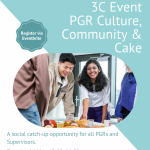 Upcoming 3C Event – PGR Culture, Community & Cake
Upcoming 3C Event – PGR Culture, Community & Cake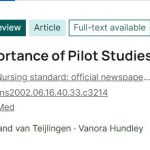 Paper with 160,000 reads
Paper with 160,000 reads The Month in Research: April 2024
The Month in Research: April 2024 Apply for up to £1,000 to deliver an event and take part in a national festival of public engagement with research
Apply for up to £1,000 to deliver an event and take part in a national festival of public engagement with research MSCA Postdoctoral Fellowships 2024
MSCA Postdoctoral Fellowships 2024 Horizon Europe News – December 2023
Horizon Europe News – December 2023